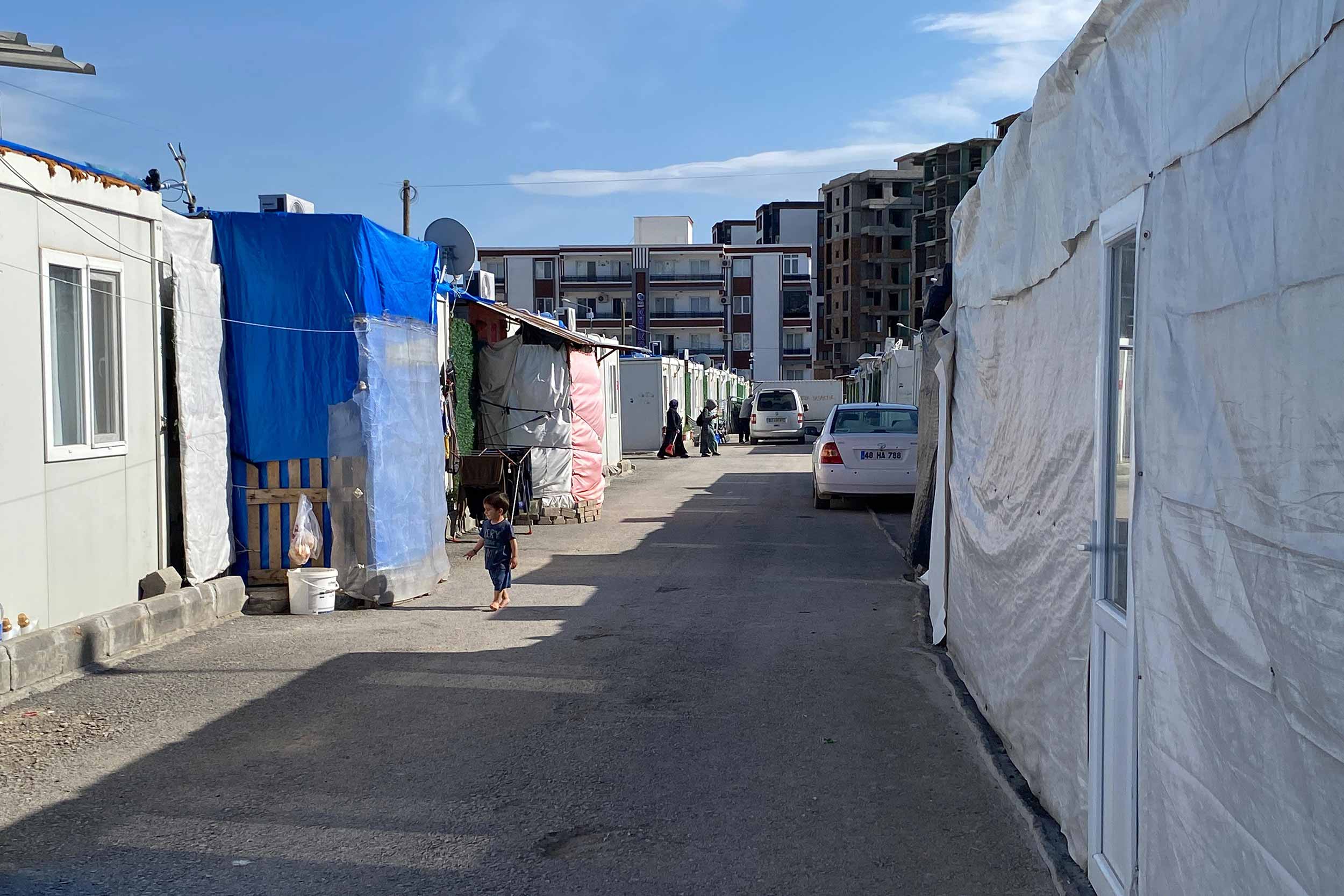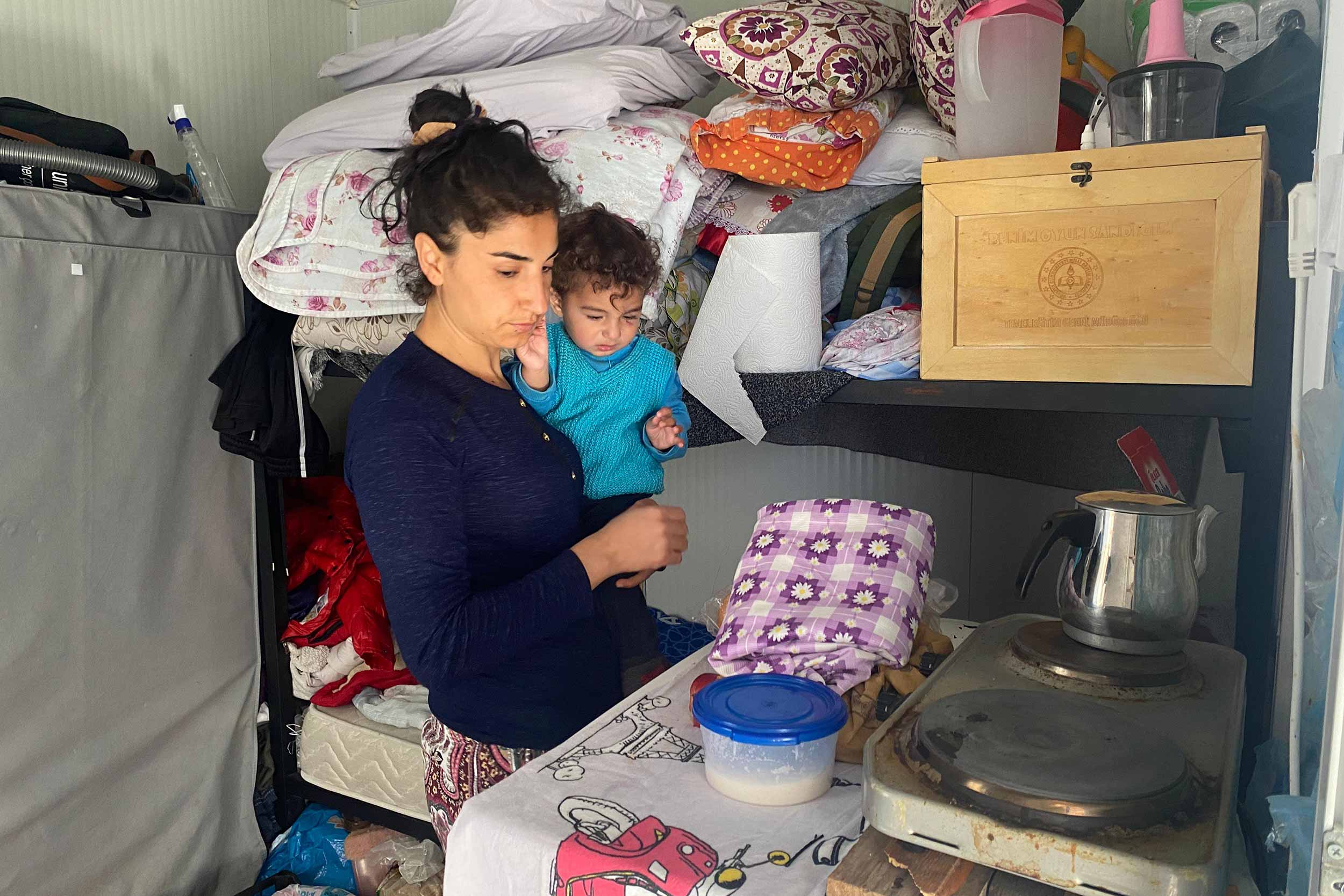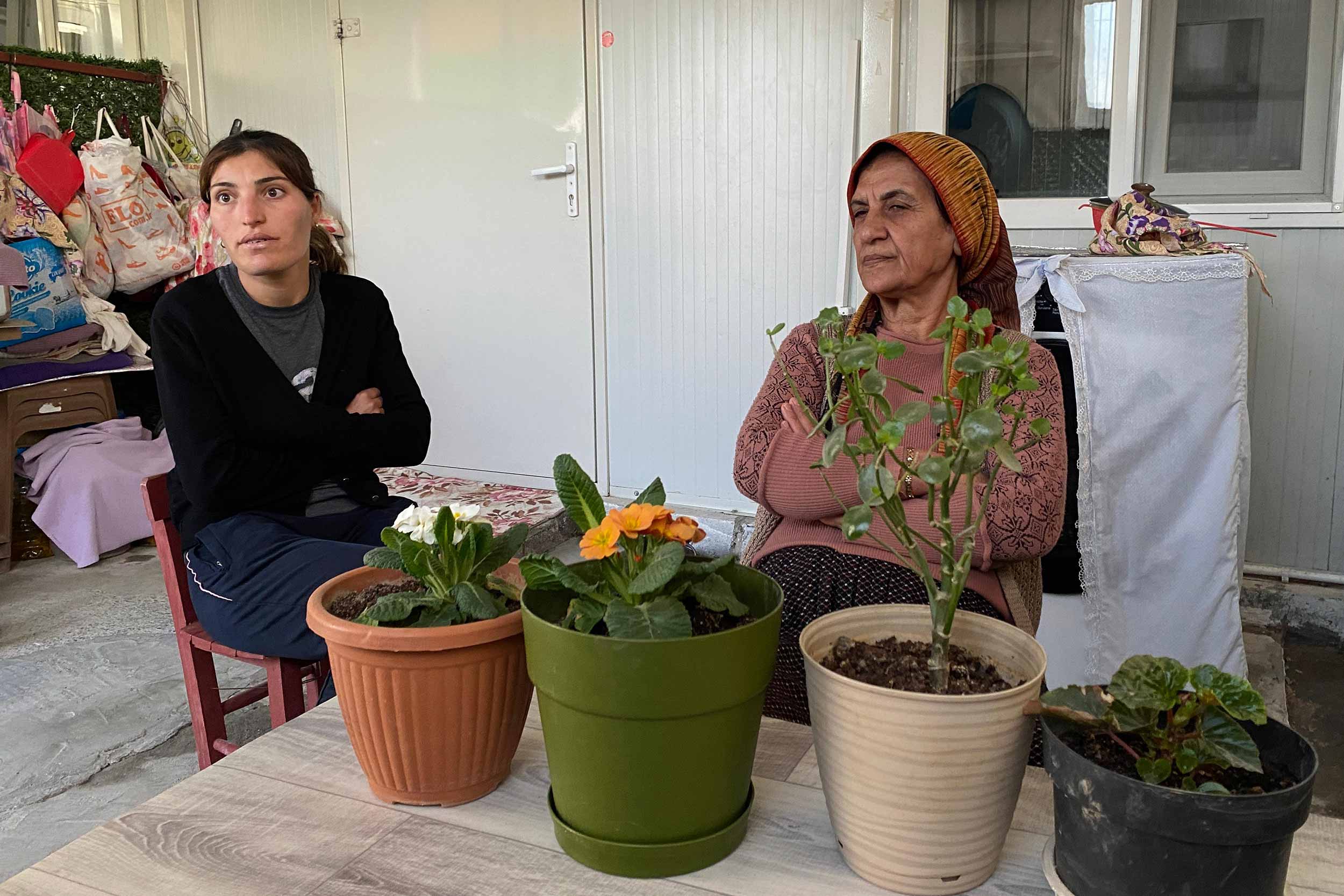Turkey’s Earthquake Survivors Mark Another Difficult Eid
Two years later, many still live in temporary housing and struggle with the disaster’s physical and emotional consequences.
“We used to visit my mum and dad with my children on the first day of Eid,” recalled Seher Yiğit. “Now, the only place I can visit is the empty lot where their home used to stand. I kiss gravestones, instead of my parents’ hands.”
Eid al-Fitr, which marks the end of Ramadan, has just been celebrated by millions of Muslims all around the world. But for thousands of people who lost loved ones in the massive twin earthquakes that struck Turkey just over two years ago, the festival was less joyful.
For 37-year-old Yiğit, who lives in the southern Turkish city of Adıyaman, Eid is now a time to grieve. She lost 17 relatives, including her parents, in February 2023. Her own house was heavily damaged, like hundreds of thousands in the earthquake zone.
“We only remembered that Eid was on the way when we saw it on television,” Yiğit told IWPR. The conversation took place inside her shipping container home - a supposedly temporary solution for housing and workplaces in the earthquake zone - which she has been living in since the disaster.
“Before the earthquakes, we had hopes and dreams,” she continued. “Yet we’ve been left with nothing. And the worst thing is that we don’t have any hope things will get better.”
The 2023 earthquakes affected 11 provinces in Turkey, causing over 53,000 deaths. In Adıyaman, 8,327 people died and over 63,000 homes were destroyed or severely damaged. According to the municipal authorities, some ten per cent of the city’s residents - around 56,000 people - currently live in containers.

Their experiences highlight how profoundly a disaster reshapes lives - not just physically, but emotionally - and underscores the urgent need for support that goes beyond temporary solutions.
Ayten Torun vividly remembers spending 17 hours trapped beneath the rubble of her apartment building. She was saved by a wardrobe that fell over her, just about keeping the 30-year-old alive until she could be rescued by her family, though she suffered injuries to her neck and ear. Her husband, who sustained severe kidney damage, spent 28 days in intensive care.
After being discharged from hospital, the family moved to a tent in one of Adıyaman’s rural villages. But life in a tent proved unbearable, especially for her young son. They moved into a container, which, according to Torun, marked yet another step away from normal life.
“Our entire life is squeezed into a single room that's about the size of one of our old bedrooms,” Torun said. “You can't prepare for Eid when every day is a struggle. While you're tidying up one side of the container, the other side falls apart. Cooking a simple meal feels like losing years of your life. Nothing tastes good any more, not even the bulgur pilaf we once enjoyed so much.”
Her biggest worry remains her five-year-old son, whose mental health has severely deteriorated since the earthquakes.
“My son wakes up crying every night,” she continued. “He constantly asks when we can return to our real home. How can I explain to him that Eid has arrived, when there's nothing left to celebrate?”

When the earthquake hit, Aslı Bozkurt, a 29-year-old mother-of-four, was stuck under the rubble with her youngest child for 14 hours. Initially presumed dead, they both survived - but their hardships were just beginning.
Pregnant and injured, Bozkurt spent eight months living in tents before moving into a container, battling extreme weather, unemployment and isolation. Her husband, the family’s only breadwinner, previously worked in retail and now works as a shepherd.
“Eid hasn't visited these places for two years,” Bozkurt said. “My children have nowhere to go, and there's nobody left to visit. Every day, we simply wake up and struggle to survive. For us, Eid is just another day.”
Psychological counsellor Berfin Hanalp, who has been working in Adıyaman for nearly two years, highlighted the deep psychological and social impact the earthquake continues to have, especially on women and children.
“Container life, intended to be temporary, has become a new normal, profoundly affecting women who bear an increased burden of household responsibilities in confined spaces,” Hanalp explained. “This not only intensifies their daily struggles but also significantly restricts their participation in public life, isolating them further.”
She emphasised the emotional complexities surrounding celebrations like Eid.
“Festivities trigger both happiness and grief within the community,” Hanalp continued. “Women and children in particular require spaces and opportunities to express these complex emotions. Without sustainable support and structured environments, mental health challenges will persist, possibly affecting communities for generations.”

Nafiye Esen has known poverty for most of her life. Widowed 35 years ago, the 57-year-old raised four children alone. Yet she insisted that nothing compared to the misery she experiences now.
Esen currently lives in a container with her disabled brother-in-law, surviving only on his disability pension. Their poverty is evident in everyday details - like being unable to offer tea to visitors because they lack the gas to heat the water.
“I've always been poor, but life was still beautiful in its own way,” Esen said. “Now, Eid means nothing any more - just another day struggling to survive.”
İslim Özen, 62, agreed. She also lives in a container with her three children. When asked if she has got used to her new living conditions, she replied, “I had to. But it’s not living, it’s surviving.”
“Before the disaster, days ahead of the Eid were full of excitement,” Özen recalled. But now, only the daily struggle for survival remained.
“Even putting a plate of food on our table in the evening is a celebration for us,” Özkan said. “We didn’t have anything additional to celebrate during Eid. Those days passed like the others.”
